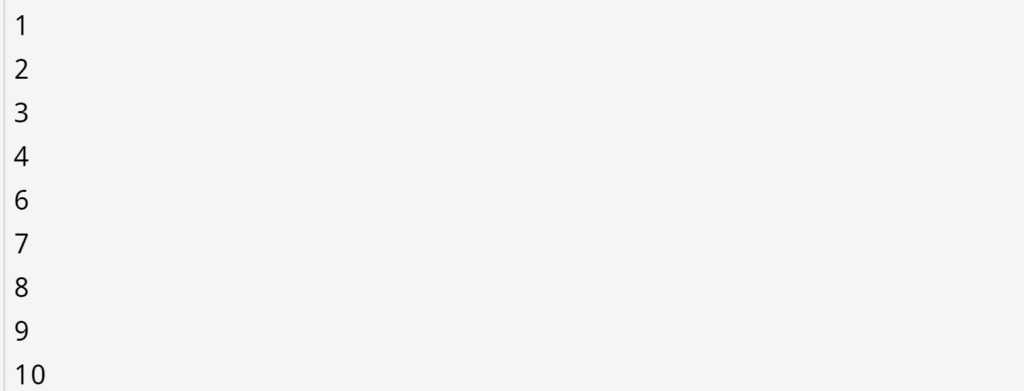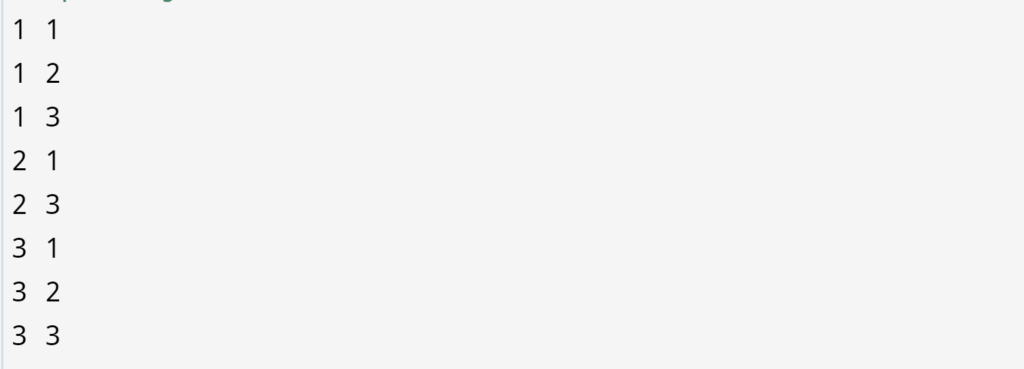continue is a keyword in C language. It is used to bring the program control to the beginning of the loop.
Continue is also a loop control statement just like the break statement.
The continue statement skips the current iteration of the loop and continues with the next iteration.
As the name suggest the continue statement forces the loop to continue or execute the next iteration.
Syntax
//loop statements
continue;
//some lines of the code which is to be skipped Flowchart

Example
The continue statement is almost always used with the if...else statement.
#include<stdio.h>
int main() {
int i = 1; //initializing a local variable
//starting a loop from 1 to 10
for (i = 1; i <= 10; i++) {
if (i == 5) { //if value of i is equal to 5, it will continue the loop
continue; /* skip the iteration */
}
printf("%d \n", i);
} //end of for loop
return 0;
}
As you can see, 5 is not printed on the console because we used continue statement at i==5.
C continue statement with inner loop
#include<stdio.h>
int main() {
int i = 1, j = 1; //initializing a local variable
for (i = 1; i <= 3; i++) {
for (j = 1; j <= 3; j++) {
if (i == 2 && j == 2) {
continue; //will continue loop of j only
}
printf("%d %d\n", i, j);
}
} //end of for loop
return 0;
}
As you can see, 2 2 is not printed on the console because inner loop is continued at i==2 and j==2.